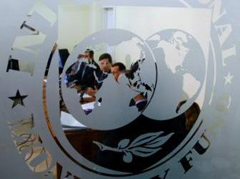Analytics, Crisis, Economics, EU – Baltic States, Financial Services
International Internet Magazine. Baltic States news & analytics
Tuesday, 17.02.2026, 01:03
IMF: Baltic crisis eased but tough road ahead
 Print version
Print version |
|---|
But the pace of expansion will depend on how quickly the trio of states, which are still feeling the effects of a painful fiscal adjustment, can develop their export sectors and further improve their competitiveness, a senior IMF official said.
The Baltics suffered badly in the aftermath of the financial crisis, leaving Nordic banks like Swedbank (SWEDa.ST) and SEB (SEBa.ST) nursing steep losses in the region, writes LETA/ELTA/Reuters.
"The Baltic countries have turned the corner... have bottomed out," Mark Allen, senior IMF resident representative for Central and Eastern Europe, told a conference.
"Growth prospects will depend on how well these countries can shift to a more export-oriented model," he said at the Baltic mergers and acquisitions and private equity forum.
The future would be challenging as households were in a difficult position due to unemployment and deleveraging and the corporate sector also faced problems.
"There is a further fiscal adjustment going on and there is going to be a shortage of bank capital," Allen said.
He said Latvia, Estonia and Lithuania should make sure wages do not rise faster than productivity, that business is not taxed excessively, that public finances are kept tight and that prices do not rise faster at home than abroad.
All three nations declined to devalue their currencies in the face of the recession, which would have boosted competitiveness. Instead, they cut wages and spending in austerity packages to achieve the same end.
Latvia also had to take a 7.5 billion euro bailout, led by the International Monetary Fund and the European Commission.








 «The Baltic Course» Is Sold and Stays in Business!
«The Baltic Course» Is Sold and Stays in Business!

